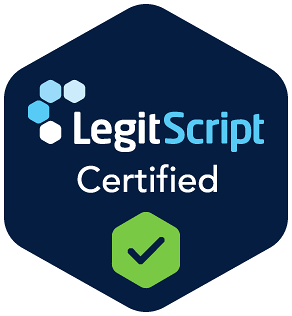.jpg)
The Science of Addiction: Understanding How Substance Abuse Affects the Brain
Addiction is often misunderstood. While many still view it as a matter of choice or willpower, science tells us otherwise. Addiction is a chronic, relapsing brain disease that alters how the brain functions—especially in areas related to reward, motivation, decision-making, and impulse control.
At Spark Wellness, with locations in Yardley and Elkins Park, PA, we believe that understanding the science behind addiction is a key part of healing. The more we know about how substance use affects the brain, the better equipped we are to treat it with compassion, strategy, and proven therapeutic approaches.
What Happens in the Brain During Addiction?
When a person uses drugs or alcohol, these substances trigger the release of dopamine—a neurotransmitter associated with pleasure and reward. Over time, repeated use can cause the brain to produce less dopamine naturally or reduce the number of dopamine receptors. This leads to a cycle where more of the substance is needed to feel the same effect, also known as tolerance.
At the same time, substances hijack the brain’s reward system, causing the brain to prioritize drug use over other life-sustaining activities like eating, sleeping, or maintaining relationships. As addiction progresses, the prefrontal cortex—the area responsible for decision-making and impulse control—also becomes impaired. This helps explain why individuals may continue using substances despite negative consequences.
Addiction Is Not Just About Willpower
Understanding these neurological changes is crucial. Addiction is not a moral failing or a lack of discipline—it’s a brain disease that alters behavior, judgment, and emotional regulation. This is why professional treatment is so essential. Just as someone with diabetes or heart disease needs medical care, those struggling with addiction need structured, evidence-based support to recover.
How Spark Wellness Treats the Brain and the Whole Person
At Spark Wellness, we take a holistic and neuroscience-informed approach to treating substance use disorders. Our outpatient programs in Yardley and Elkins Park are designed to meet clients where they are in their recovery journey—supporting them physically, mentally, and emotionally.
Our services include:
- Individual therapy to address the thought patterns and behaviors linked to substance use
- Group therapy for peer connection and shared learning
- Trauma-informed care to treat underlying emotional wounds that may contribute to substance use
- Family therapy to improve communication and rebuild trust at home
- Psychoeducation on the science of addiction and relapse prevention
- Holistic practices such as mindfulness and stress management
Each of our services is grounded in a deep understanding of how the brain heals and adapts—making recovery not only possible but sustainable.
There Is Hope—and Healing
Understanding the brain science behind addiction can be empowering. It removes the shame and replaces it with compassion and clarity. If you or someone you love is struggling with substance use, know that help is available—and that recovery is rooted in more than just good intentions. It’s based on evidence, strategy, and support.
Contact Spark Wellness today to learn more about our treatment options in Yardley and Elkins Park, and take the first step toward a healthier, stronger future.
Recovery articles for you
.jpg)
Setting Boundaries: Protecting Your Sobriety in Social Situations
.jpg)
Building Resilience: How to Bounce Back from Relapse
.jpg)



